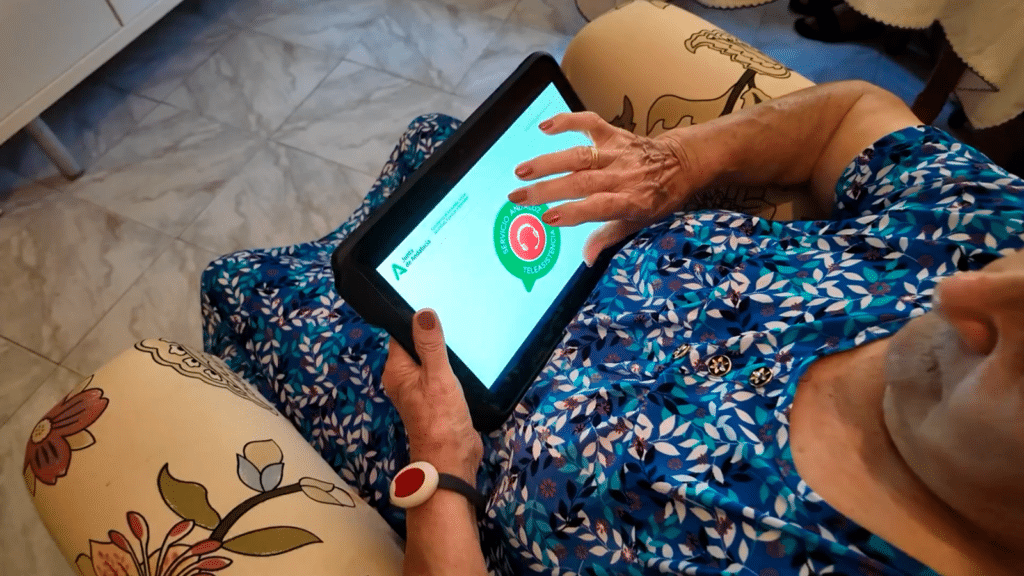
Harnessing the power of technology and new digital tools is key to supporting inclusive communities and neighbourhoods. This Award recognises not only advancements in technology and digital improvements that promote inclusion in communities, but also the availability and accessibility of digital tools, relevant services, training for digital literacy, ensuring everyone’s digital inclusion.
Ensuring Web- Accessibility for Persons with Disabilities
Name of Organisation: The Agency for Sustainable and Operative Social Provision
Country: Azerbaijan
Website: https://dost.gov.az/
This project addresses the social problem of digital inaccessibility for people with disabilities in Azerbaijan, particularly in accessing government services online. The project develops a sustainable mechanism to ensure that websites, especially those of government agencies, are accessible according to international standards (WCAG), thus bridging the gap between legislation and practical access to digital services for people with disabilities. The project promotes inclusive communities by actively engaging and involving people from marginalised and high-risk groups, such as those with disabilities. It emphasises that a ‘one size does not fit all’ approach is essential for effective community engagement, ensuring that diverse voices are heard and valued in policymaking processes. The project has driven substantial progress in making online information and services more accessible, mainly through improvements in government websites and mobile applications, promoting a more inclusive digital environment.

SimbiòTIC: Advancing Data Management to Improve Care
Organisation: Taula d’entitats del Tercer Sector de Catalunya
Country: Spain
Website: https://m4social.org/projecte/digital-transformation-simbiotic/

SimbiòTIC addresses the issue of inefficient data management and service delivery within social third-sector organisations. Many of these entities lack the digital tools and resources to optimise their internal management and improve interaction with their communities, especially in delivering services to vulnerable populations. SimbiòTIC addresses these issues by supporting the adoption of SinergiaCRM, a specialised customer relationship management (CRM) system, to enhance service delivery across more than 80 social organisations. SimbiòTIC provides guidance, resources, and continuous support to help these organisations improve their internal data management, streamline operations, and enhance communication with their social base. The CRM has served approximately 50,600 beneficiaries.
Addressing Gender-Based Violence among Children
Organisation: SAMU Foundation
Country: Spain
Website: https://www.samu.es/

This project addresses the challenges in recognising gender-based violence among school-aged children (6-16). The SAMU Foundation developed interactive, accessible digital guides on gender-based violence. These guides include subtitles, sign language, and audio narration, ensuring equal access for students with hearing or visual impairments. They are available online and in over 20,000 classrooms across Spain. The project raised awareness about gender-based violence and provided inclusive educational materials accessible to all students.
Improving Home Care with Telecare and Predictive Systems
Organisation: Andalusian Agency for Social Service and Dependency
Country: Spain
Website: Junta de Andalucía – Portal oficial (juntadeandalucia.es)
The Andalusian Telecare Service (SAT) is addressing the needs of 125,000 people with long-term needs. The project aims to enhance their care through a new system that combines comprehensive software and predictive technology. The system uses artificial intelligence and sensors to provide personalised support, including features like audiovisual communication, digital content access, reminders, chat, and behavioural monitoring. By improving autonomy and integration into communities, the project alleviates isolation and fosters active participation in people’s communities. With a budget of 166 million euros, it will benefit 125,000 users and support over 400 professionals. The anticipated outcomes include more personalised care and stronger community connections, transforming how people with long-term needs interact within and with their communities.

The Social Work Way Mobile App
Organisation:The Social Work Way
Country: United Kingdom
Website: Home – The Social Work Way

The Social Work Way mobile app addresses critical challenges for social workers and families, enhancing inclusion in the community. The app provides a centralised digital platform that simplifies access to and sharing of resources like PDFs and images, improving social workers’ efficiency and effectiveness in their daily work. It also offers comprehensive information about local social services, ensuring that everyone in the community, including people with disabilities, migrants, and older individuals, can access the support they need. Features such as mental health tools, a referral system, and Personal Outcome Measuring Tools help users track goals and connect with services, fostering greater participation and inclusion. By integrating these digital tools, the app transforms social services, making them more accessible, efficient, and responsive, as well as promoting a more inclusive and supportive community.
Digital Social Services Case Management
Organisation: Ministry of Social Policy of Ukraine
Country: Ukraine
The Ministry of Social Policy of Ukraine is revolutionising social service delivery by implementing electronic case management. This system improves transparency and efficiency, helping individuals and families in challenging circumstances to receive personalised support. Through this platform, social workers can monitor service progressdigitally manage documentation, and directly communicate planned actions to those they support. The initiative has reached millions, including internally displaced persons, reducing processing times and building trust in the system. With backing from organisations like UNICEF and the World Food Programme, the project continues to expand across Ukraine.

